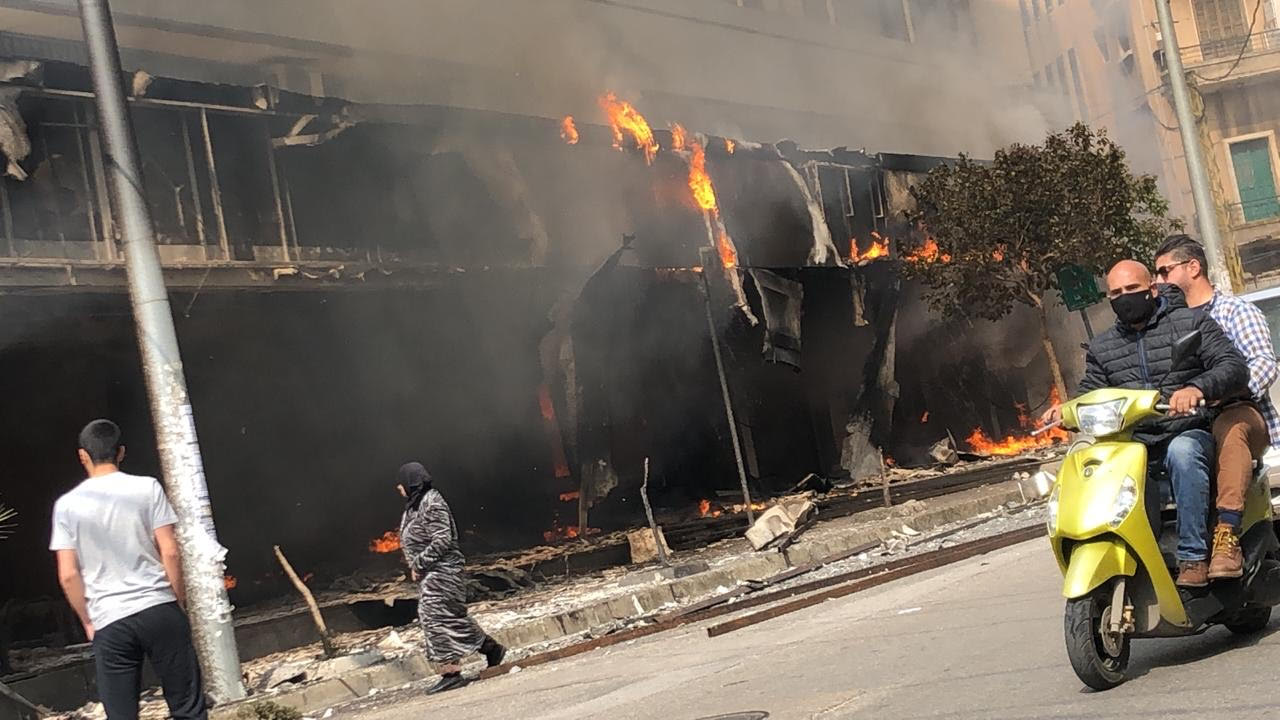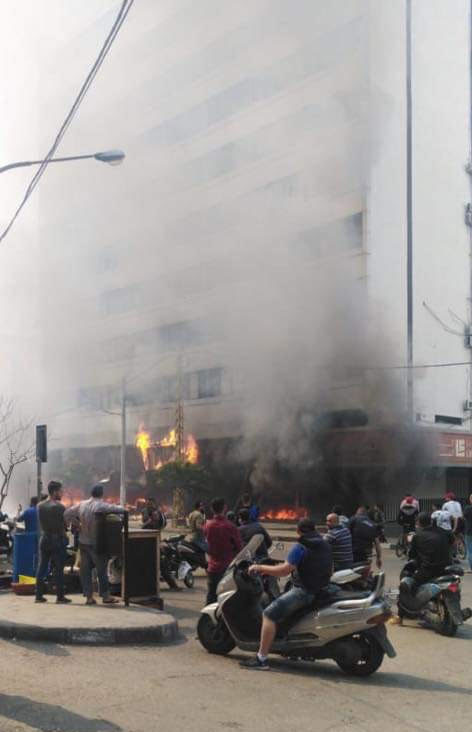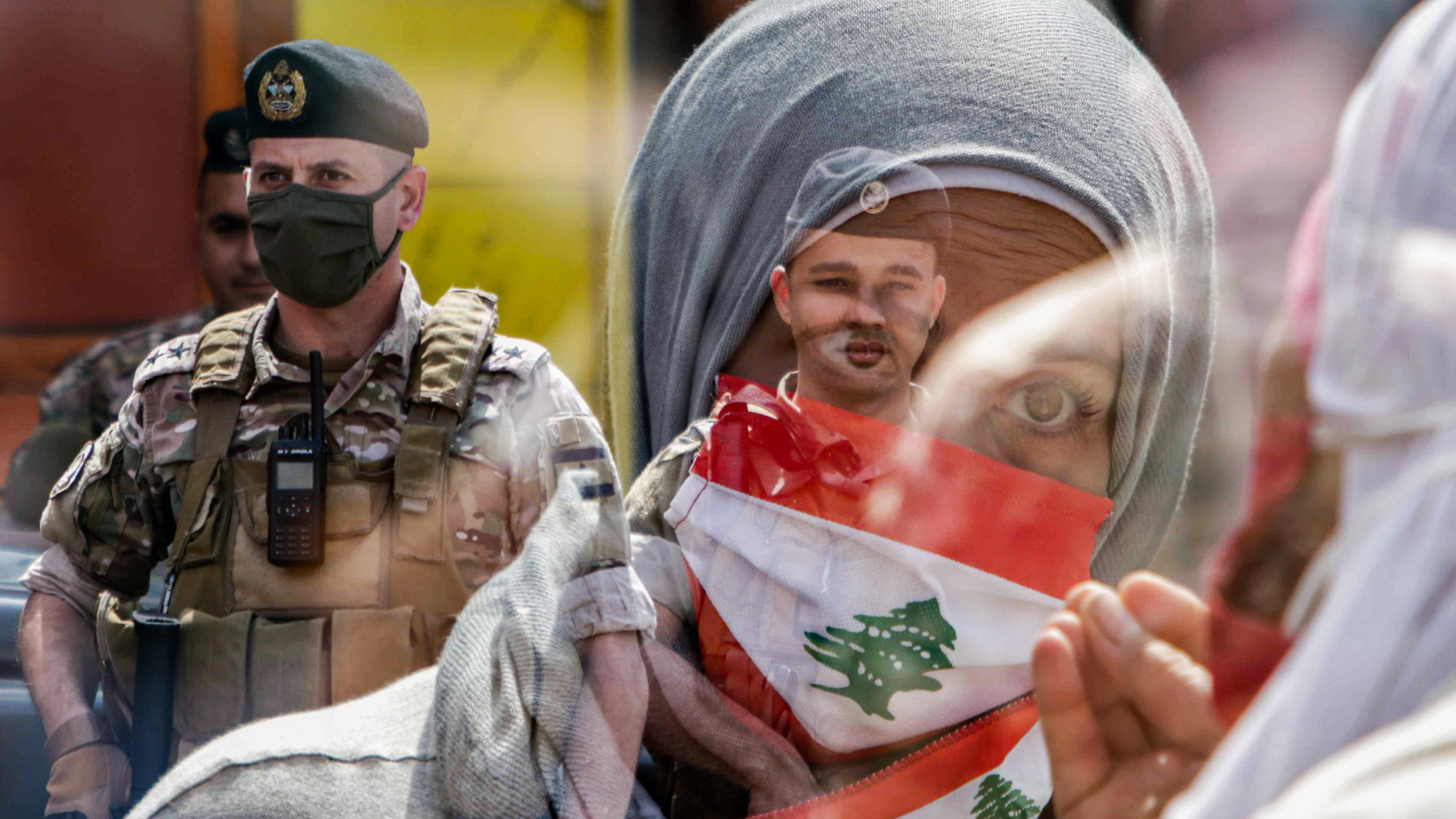As Economy Crashes, Lebanon’s Anti-government Protests Restart
Demonstrations had been on hold during coronavirus lockdown
Hundreds of Lebanese demonstrated in central Beirut and other cities last week, to renew the protests against government corruption, difficult living conditions and controversial banking policies, aggravated by a deteriorating economy caused by the coronavirus pandemic.
Security forces cordoned off protests in front of Banque du Liban, the country’s central bank, after demonstrators attacked a number of bank fronts in the northern city of Tripoli and blocked roads throughout the country.
Activist Nada Nasif, who has been part of the protests since they began in October, told The Media Line that people had stayed home for over a month now as part of the curfew and other preventive measures against COVID-19, and the economic crisis had worsened without any clear government response.
“Our financial crisis began before the corona crisis, which then caused prices to jump. People lost their jobs and the unemployment rate has reached the highest level ever,” Nasif said. “Beyond all that, our government has no plan to protect the citizens, especially the poor ones; the plan to protect the poor failed to pass in the parliament last week.”
Nasif said that once people figured out that if things continued as they were, “they were going to die anyway…, we decided that we might as well die in the streets from the corona. It is better [then dying of hunger].”
Abd Jomaa, another protester, told The Media Line that the situation was very difficult, where some people were unable to provide food for their children. “Now it’s Ramadan, and most families have empty tables or just the bare minimum, when their tables used to be full before.
“The prices of foodstuff have become like stocks, but they always go up, even though most of the products are local [and not imported],” he said.

Clashes between protesters and Lebanese security forces after protesters set fire to and destroyed the Zahrieh branch of the Lebanese French Bank, April 30. (Courtesy Abd Jomaa)
In March, Beirut failed to make a $1.2 billion Eurobond payment as the new prime minister, Hassan Diab, said that Lebanon would for the first time ever default on a payment, and work to restructure its $92 billion in sovereign debt.
Strict limits have been placed on withdrawals from bank accounts, due to the shortage of foreign currency. The International Monetary Fund has demanded tough measures, rejected by the protesters, in return for providing assistance.
Jomaa said that while the Lebanese were being “suffocated by the increase in the cost of living, Prime Minister Hassan Diab went to the central bank for money. That required a response, and most of the confrontations [between protesters and security forces] took place near banks.”
The anti-government demonstrations began in October 2019, when people rose up against planned taxes on gasoline, tobacco and VoIP calls on applications such as WhatsApp, then widened to express deep dissatisfaction with economic mismanagement, corruption and sectarianism, leading then-prime minister Saad al-Hariri to resign on October 29.
Demonstrators vowed not to leave the streets until there was a government of experts rather than politicians. After a new government was formed in January, the protesters declared their lack of confidence in Diab and his cabinet.
“Big companies such as Coca-Cola and other international firms are shutting down in Lebanon, which means that our economy has completely collapsed to a point that it has affected such companies,” Rabee Damaj, a Lebanese journalist based in Dubai and Beirut, told The Media Line.
He said the central bank’s limits on withdrawals from people’s accounts had to do with preparing them for the possibility they might lose half of their money. “Most Lebanese travel abroad for work and they send their earnings through banks to their families in Lebanon. Now, you could say the money they saved and the years they worked are gone. As a consequence, the least they can do is to protest in the streets.”
Damaj added that foreign countries had refrained from providing financial assistance to Lebanon because of Hizbullah’s powerful position in the country and the fact that it was an armed organization.

Clashes between protesters and Lebanese security forces after protesters set fire to and destroyed the Zahrieh branch of the Lebanese French Bank, April 30. (Courtesy Abd Jomaa)
Hisham Jaber, a leading Lebanese military expert and former major-general, told The Media Line that the protesters could be divided into two groups. The first group represented the people. “These citizens go into the streets for a few hours as a kind of proof they still exist and a reminder that the revolution is still alive [despite the corona crisis].”
The second group consisted of people who were paid to protest for political purposes, “to please the audience of [Future Movement party head] Saad al-Hariri and [the late Progressive Socialist Party founder] Kamal Jumblatt. And also to bring down the current government, which we are fully aware isn’t perfect and does not represent what the Lebanese people really wanted, but it’s not the right time to start such chaos,” Jaber said.
The reform plan recently proposed by the current Lebanese government was very weak, “but even so, that doesn’t justify attacking security personnel, especially during such a time,” he said.


